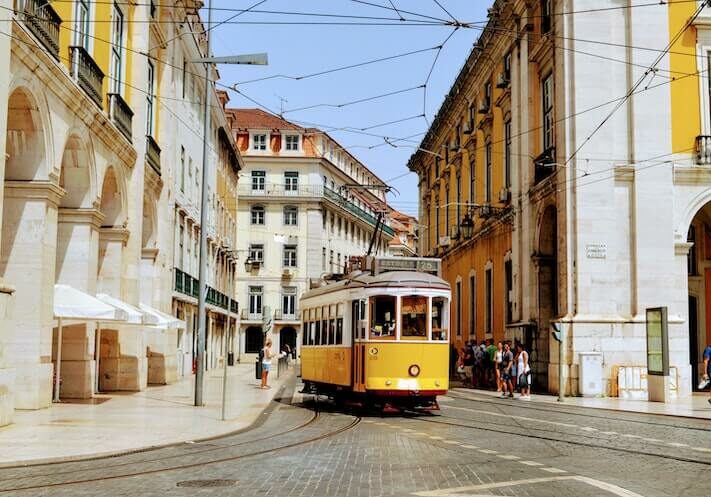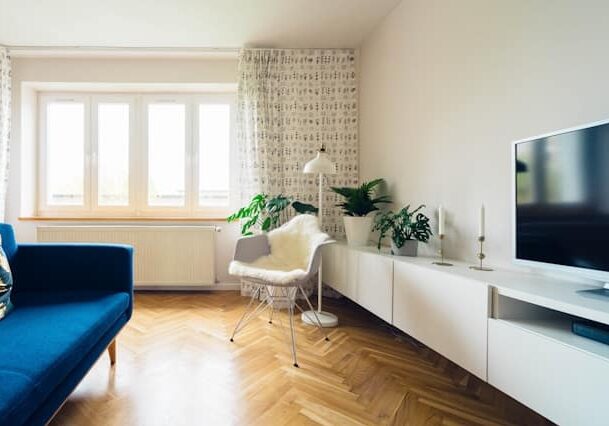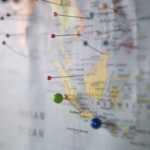The Portugal Digital Nomad Visa is a residency visa that enables remote workers and freelancers to live in Portugal for at least one year. The program caters to the growing wave of location-independent professionals seeking more than just a temporary escape; it offers a legal pathway to live and work in a country consistently ranked among the world’s best for quality of life, safety, and affordability.
With attractive benefits like access to the Schengen Zone, favorable tax policies, and an affordable cost of living, Portugal’s Digital Nomad Visa has become a top choice for global professionals looking to combine work with the charm of European living.
In this article, we will explore the key requirements, application process, and advantages of securing this visa, helping you determine if Portugal is the right fit for your digital nomad journey.
You’ll also find out more about:
What is Portugal's Digital Nomad Visa?

It is a long-term residency option explicitly designed for non-EU/EEA remote workers wishing to live in Portugal while maintaining employment with companies outside the country.
It enables you to continue your employment or freelance work for companies or clients outside of Portugal. You can work from anywhere in the country, whether in a co-working space, a café, or the comfort of your home.
It allows you to stay in Portugal for up to one year, with the possibility of renewal. As a D8 Visa holder, you can also travel freely within the Schengen Area, which includes 29 European countries, for up to 90 days within a 180-day period.
Additionally, you can access certain public services in Portugal, including healthcare (with appropriate health insurance) and public transportation.
One of the D8 Visa’s subcategories allows for family reunification, meaning you can bring your spouse, children, or other dependents to Portugal under certain conditions.
Portugal Digital Nomad Visa Types
Portugal’s Digital Nomad Visa is divided into two categories. Remote workers can either apply for a temporary stay (short stay visa) for up to one year or a residency permit that can be renewed for up to five years.
The two Portugal Digital Nomad Visas are very appealing, whether you want a short-term temporary stay visa or want to obtain a residency visa and live longer in the country.
1. Short Stay Visa
The short-stay visa is aimed at remote workers who want to stay temporarily in Portugal for up to one year. It affords you all the benefits that come with the visa, and it gives you enough time to decide if you want to remain in Portugal.
2. Residency Permit

This includes taking a basic Portuguese language test and holding a clean criminal record.
As with the short-stay visa, applicants must prove that their active income is four times the national minimum wage, which equals around €3,480.00.
Benefits of Portugal's D8 Visa
Here are some of the key advantages of Digital Nomad Visas in Portugal:
Right to live and work in Portugal: With this temporary stay visa, you can live in Portugal legally for a specific duration, typically up to one year. For comparison, the tourist visa (Schengen visa) allows you to stay in the country for 90 days every three months.
Visa-free travel across the Schengen Area: Portugal is a part of the Schengen Area. Digital Nomad Visa holders can travel visa free to other state members of the European Union.
Access to public services in Portugal: Holders of the Portuguese Digital Nomad Visa have access to public services in Portugal, including healthcare, education, and other social benefits.
Pathway to EU citizenship: After five years of legal residence in Portugal, digital nomads can apply for permanent residence and Portuguese citizenship. Please note that you must pass a basic Portuguese language test (A2 level) to become a Portuguese citizen.
Family reunification: The long-stay version of the visa allows for family reunification. Portugal Digital Nomad Visa applicants can bring family members, such as the spouse or dependent child, to live in Portugal with them.
Portugal Digital Nomad Visa Eligibility Criteria
Several criteria must be met to be eligible for the D8 Visa, but the most important ones involve proving you work remotely and meeting the minimum income threshold. The two main eligibility criteria to get a Digital Nomad Visa to Portugal are:
- You must have fully remote work on a permanent contract or freelance.
- You have to prove the total income from all sources, which would be at least €3,480 per month.
In addition, you must be over 18 years old and be a non-EU and non-EEA citizen.

Portugal D8 Visa Required Documents

- Proof of accommodation in Portugal
- Proof of valid health insurance coverage
- Work contract, letter of employment, or partnership agreement
- Latest three bank statements confirming your monthly income meets the minimum requirements
- Latest tax return or tax receipts
- Portugal D8 Visa application form
- Proof of Digital Nomad Visa fee payment
In addition, you’ll also need to submit:
- Cover letter explaining the purpose of your Portuguese Digital Nomad Visa application
- Valid passport
- Two recent passport photos
- Certificate of a clean criminal record
Additional documents are required if you wish to include family members in your Portugal Digital Nomad Visa:
- Marriage certificate (certified by Apostille)
- Birth certificate for dependents (certified by Apostille)
Proof of remote work

Employment Contract: If employed by a company based outside of Portugal, you must provide a valid employment contract. This contract should clearly state that your role is remote and not tied to any physical location within Portugal. It should also include details such as your job title, salary, and the duration of your employment.
Freelance Agreement: If you are a freelancer, you must present contracts or agreements with clients primarily based outside of Portugal. These agreements should detail the work’s nature, the contract’s duration, and the payment terms. Additionally, you may need to show evidence of multiple ongoing contracts to demonstrate the sustainability of your freelance income.
Proof of Business Ownership: If you own a business that operates remotely, you must provide documentation proving your ownership, such as business registration documents, proof of income, and a description of your business activities. The business should be registered outside of Portugal and demonstrate that the business operations are managed remotely.
Bank Statements: To further support your application, you might be asked to provide recent bank statements showing regular payments from your employer, clients, or business activities. This helps to confirm the financial viability of your remote work.
Proof of sufficient income

This requirement is designed to demonstrate that you can live comfortably in Portugal without relying on local employment or social assistance.
Minimum Amount: The minimum income requirement is set at four times the national minimum salary in Portugal and is currently €3,480.00. In addition to the earnings, the applicant needs at least €10,440 in their bank account. If applying with family members, the income requirement increases by 50 percent for a spouse or a parent and 25 percent per child.
Proof of Income: To meet this requirement, you must provide evidence of your income over the past few months. This can be in bank statements, pay slips, or tax returns. The documentation should clearly show that your income meets or exceeds the required threshold.
Consistency of Income: It’s important to demonstrate that this income is consistent and stable. For example, providing bank statements for the last three to six months that show regular deposits from your employer, clients, or business activities will help confirm that you have a reliable source of income.
Source of Income: The income should come from a source outside of Portugal, such as a foreign employer, freelance clients, or a business you own that operates internationally. This ensures that your financial support is not dependent on local Portuguese resources.
Proof of accommodation

This can be a rental agreement, a lease, a property deed if you own a home in Portugal, or a letter of invitation from a host if you plan to stay with someone.
The temporary stay visa requires a rental lease of at least four months, while the long-stay visa requires a lease of at least 12 months.
The documentation should clearly state the address of the property, the duration of the rental or stay, and the names of the tenants or occupants.
Health insurance coverage
The D8 Visa applicant must have health and travel insurance for the visa application by the time of the AIMA appointment. The health insurance must cover them as residents of Portuguese territory during the application period.
Many private health insurance plans are available in Portugal and can be paid via direct debits from your new Portuguese bank account.
Regarding health insurance, upon obtaining your permanent residency in Portugal, the applicant may apply to the Portuguese public health system. The digital nomad can then use their registration in the National Health System to renew their residence permit.
How To Apply for Digital Nomad Visa Portugal: Step-by-Step Guide
The following instructions detail the process of applying for a Portugal D8 Visa (temporary stay visa for Portugal). Although the process is somewhat similar when applying for the D7 Passive Income Visa, the D2 Entrepreneur Visa, and the Portuguese Golden Visa, these require extra documentation and significant investment; hence, consulting a Portugal immigration lawyer is recommended.
You must apply for a residence permit upon arrival in Portugal for all four visas. Instructions on how to do this are provided below, and they also apply to EU/EEA/Swiss citizens wishing to register as residents in Portugal.
1. Gather the required documents
2. Fill out an application form and write a cover letter
3. Lodge your application
4. Await your visa
5. Enter Portugal and register as a resident
Step 1: Gather the required documents
Before you start your Portugal D8 Visa application, ensure you have all the necessary documents at hand. All documents issued by non-EU countries must be officially authenticated by an Apostille from the country of issuance for use in a different country.
Although you can complete your initial visa application in Portuguese, English, or your local language at your local Embassy, your documents must be translated into Portuguese and authenticated by the Portuguese embassy for your residency permit application in Portugal.
Keep copies of all your Digital Nomad Visa application documents, as you will need them again for your residency application.
Step 2: Fill out an application form and write a cover letter

Your application form should also specify how you would like your passport to be returned to you after the application process.
Your Portugal D8 Visa application must be accompanied by a cover letter that should detail the following:
- Your personal details
- Your reason for applying for temporary residence in Portugal
- Any connections you have to Portugal
- Your planned accommodation in Portugal
- How you plan to sustain yourself and any dependents during your stay in Portugal
Each applicant must write their own cover letter. However, cover letters for dependents can be shorter and should reference the principal applicant’s documentation.
All cover letters should be signed and dated by the applicant or their legal guardian.
Step 3: Lodge your application
Submit your application, supporting documents, and Portuguese Digital Nomad Visa fee at your local Portuguese Consulate. For some countries, you can book an appointment with VFS Global, which operates like a local Portuguese embassy as the official partner of the Embassy of Portugal.
You will need to personally visit the consulate or application center for your fingerprints and photo to be taken by AIMA and submitted as biometric information.
Portugal’s Digital Nomad Visa application fee, which is currently around €93 per person, must be paid at this stage.
Step 4: Await your D8 Visa
You can track the progress of your Digital Nomad Visa application online with the reference number given to you. It typically takes 60 days for your visa to be processed. Once your Digital Nomad Visa is approved, you will receive a confirmation email.
Upon visa approval, your passport and Portuguese Digital Nomad Visa can be collected from the place where you applied, or you can choose to have them sent to you via secure post.
Step 5: Enter Portugal and register as a resident

AIMA will typically schedule an appointment for you when you apply for your Digital Nomad Portugal Visa. The date of your appointment will be included in your visa documentation. If not, you can phone AIMA to make an appointment.
For this stage, you will need to prove that you have an NIF (you should submit a NIF registration certificate) and a Portuguese bank account. A new application form, different from your original visa application form, must also be submitted.
Your appointment will take about an hour, after which you will have to pay a fee of €170. Residence permits take around two weeks to process and will be mailed to your home address in Portugal.
Portugal D8 Visa Processing Time
The Digital Nomad Visa processing timeline varies depending on the country from which you’re applying, but typically, initial visa applications take about 60 days to be reviewed and approved.
When you receive your Portugal Digital Nomad Visa, you will also be allocated an appointment date with AIMA to obtain your residence permit. Scheduling an appointment can take upwards of four months. Once your appointment is concluded, you should expect your residency permit to be delivered within 90 days.
Portugal Digital Nomad Visa Costs
The precise visa fees for the Portugal Digital Nomad Visa may differ based on your country of application and local currency fluctuations. But generally, the application fee for the Digital Nomad Visa is €93, while the Digital Nomad Visa residence permit fee is €170.
Please consider additional costs for document authentication through Apostille, translation, and certification of translated documents. These expenses can vary considerably from country to country.
Getting a NIF Number and a Portuguese Bank Account
NIF Number in Portugal
The tax identification number in Portugal, also known as the NIF (Número de Identificação Fiscal), is an essential requirement for applying for the Portugal Digital Nomad Visa. This nine-digit taxpayer number is also essential to comply with your tax obligations in the country.
Issued by the Portuguese tax authorities, the NIF number is crucial for various financial transactions such as signing contracts, opening bank accounts, leasing properties, and conducting other financial activities in Portugal.
Opening a Portuguese bank account
Opening a local bank account is another essential step for Digital Nomads moving to Portugal. You can open a bank account after getting your Portuguese NIF number.
Although a few Portuguese banks offer the convenience of online account opening, most typically mandate in-person visits for banking applications, necessitating a trip to a local branch.
To open a bank account in Portugal, our guide will help you navigate the process seamlessly, providing step-by-step instructions, essential documentation requirements, and valuable tips to ensure a smooth and efficient experience tailored to your financial needs.
Portugal Nomad Visa Taxes

The tax system operates on a self-assessment basis, meaning it’s your responsibility to calculate and fulfill your tax obligations. Note that the Portuguese tax year spans from January to December.
Paying taxes and complying with tax obligations is compulsory for freelancers in Portugal. These obligations include annual income tax returns, value-added tax (VAT), and social security contributions.
So, if you reside in Portugal for an extended period, you will become a tax resident and be subject to income taxes. In Portugal, personal income tax can reach up to 48 percent.
Best Destinations for Digital Nomads in Portugal
There are several beautiful locations to live in Portugal, from the cosmopolitan capital of Lisbon to the historic city of Porto, from the quiet of the Silver Coast to the sublime beauty of the Algarve.
1. Lisbon

Many entrepreneurs are coming to call Lisbon home, as its tech and startup scenes are booming, not least exemplified by Websummit, the largest tech festival in the world, moving to Lisbon. To be a digital nomad in Lisbon is an excellent option.
Although Lisbon has its own price tag compared to other parts of the country, it is still a very pocket-friendly city. You can head out for dinner for €20, grab a beer for €1-2, and get your coffee fix for as little as 60 cents.
2. Porto

If you are lucky, you may be able to find suitable accommodation in the Ribeira area, which is a UNESCO World Heritage Site.
What’s more, the Douro wine will keep wine lovers happy, as the region houses some of the best wines in the world. With beaches close at hand, top surf spots, and cute restaurants and bars, there is something here for everyone.
3. Peniche
Peniche is a safe bet if you want to get out of the city. Peniche is a local surf town that is considered to be one of the best spots for surfing in Europe. Check out Supertubos Beach in the summer, and you’ll find countless surfers amongst the waves. There are also surf schools for beginners to be baptized in the sport.
4. Braga
The picturesque northern city of Braga is a must-see. If you are looking for a quieter city to enjoy the authentic side of Portugal, then this city is an excellent option. You will also find several lovely Airbnb apartments with excellent amenities.
5. Sagres
If you are considering the Algarve as your digital nomad stop-off point, we recommend Sagres. Uniquely positioned on the southwestern tip of Portugal, you will find beautiful beaches spread out in the east and top surf locations to the north. There is also a vibrant array of resorts, bars, and restaurants to enjoy. Nature lovers will find much to enjoy. There are many hiking opportunities in the region, and even in the autumn and winter months, you can spend the day outside in a t-shirt.
6. Coimbra
Coimbra is excellent for digital nomads who need to focus, as the city has a quiet-town vibe. Nonetheless, as a student city (with the oldest university city in Portugal), there are also many restaurants, bars, and a vibrant social scene.
7. Ponta do Sol, Madeira: The Digital Nomad Village

The Digital Nomad Village is located in the town of Ponta do Sol, which has a population of 8,200 and welcomes up to 1,000 remote workers at a time. It’s a joint initiative set up between Startup Madeira and the government of Madeira, with the primary aim to be community benefits from the social and economic impact of attracting passionate digital nomads onto the island.
In the Digital Nomad Village, you will have access to the Slack community, continuous fun activities, and events that foster networking and meeting new people.
Alternative Digital Nomad Visas in Portugal
Apart from the Digital Nomad Visa, a few visa categories are suitable for digital nomads interested in living and working in Portugal. The alternative Digital Nomad Visas in Portugal are the following:
D7 Passive Income Visa

Passive monthly income can be generated by a pension, rental income, investments, dividends, royalties, and more.
The passive income visa is initially granted for 120 days, during which you must present at AIMA to receive a two-year residence permit. This permit grants full access to the Schengen area.
You need to prove you have enough passive foreign income to support yourself and any accompanying family members.
D2 Business Visa
The D2 Visa is aimed at non-EU entrepreneurs and encourages local investment. You must demonstrate an operating company in Portugal or have the resources to establish one. You can provide proof of your resources or a bank loan from a Portuguese bank. Along with a comprehensive business plan, you must also show you have enough money to support yourself and your dependents. After five years of holding the Portugal D2 Visa, you can apply for a permanent residency permit and later Portuguese citizenship.
Portugal Golden Visa
The Portugal Golden Visa is the country’s investment visa. With an investment of at least €250,000, you can get a residency permit that allows EU travel. Your spouse and dependent children can also obtain similar rights. Several investment options are available, including investment funds, job creation, capital investments, and national heritage or research and development donations.
Why choose Global Citizen Solutions for your Immigration Visa?
GLOBAL APPROACH BY LOCAL EXPERTS
- GCS has offices located across Portugal.
- Members of the US-Portugal and UK-Portugal Chambers of Commerce in Portugal, and the Investment Migration Council (IMC).
- Our expert team can help you throughout your journey to secure your Visa.
100% APPROVAL RATE
- Our successful track record in applications provides reassurance to applicants.
- We have helped clients from more than 35 countries secure residency in Portugal.
ALL-ENCOMPASSING SOLUTION
- With a single channel of communication, our approach ensures that you have complete clarity on your application.
- Our BeGlobal® Onboarding System allows for a total flow of information.
TRANSPARENCY AND PRIVACY
- Our pricing is clear and detailed, you will not face any hidden costs.
- All data is stored within a GDPR-compliant database on a secure SSL-encrypted server.

Frequently Asked Questions About the Portugal Digital Nomad Visa
Is Portugal good for digital nomads?
Yes, Portugal is a great place for digital nomads. If you’re a remote worker seeking an excellent climate, life in a country with a developed economy, many things to do, and good co-working spaces where you can meet fellow workers, you’ll find Portugal is a great place to work and live.
Indeed, the digital nomad community in the country is pretty well established, and Portugal’s Digital Nomad Visa is a very attractive option for remote workers and entrepreneurs.
Does Portugal have a digital nomad visa?
Yes, the new Portugal Digital Nomad Visa is for remote workers looking to work remotely from Portugal. It was launched on 30 October 2022 by the Portuguese government.
The requirements for the new official Digital Nomad Visa, the individual needs to make four times the Portuguese minimum wage to live and work in the country, which amounts to €3,480 per month.
How do I become a digital nomad in Portugal?
From 30 October 2022, the Digital Nomad Visa allows individuals to live and work in Portugal.
To apply for Portugal’s Digital Nomad Visa, individuals must make four times the national minimum wage, which amounts to €3,480 per month.
There are two categories; the first is a temporary residency permit valid for up to a year, while the second is a Portugal residency visa that can be renewed for up to five years.
Where do digital nomads live in Portugal?
The digital nomad temporary stay visa allows you to live anywhere in Portugal. Cities such as Lisbon, Porto, Braga, and Coimbra are good options. Peniche and Sagres are excellent locations if you want to be located right on the seafront.
How do I become a digital nomad?
To become a digital nomad, you must be able to do your job from anywhere. In today’s globalized world, this is increasingly common.
Many countries now have Digital Nomad Visas. For example, Portugal’s Digital Nomad Visa allows remote workers to live and work in Portugal and travel freely within the Schengen Area.
Can you apply for the Portugal Digital Nomad Visa while abroad?
Yes, you can. In fact, it is recommended to apply for Portugal’s Digital Nomad Visa while you’re still in your home country or country of residence. The application is usually made at the Portuguese Embassy or VFS Global center in your country of residence.
What is the minimum income for the Portugal Digital Nomad Visa?
There is a minimum income requirement for the Portugal Digital Nomad Visa – which is currently €3,480 per month. This income requirement is in place to ensure that you have sufficient financial means to support yourself during your stay in Portugal.
How much does a Digital Nomad Visa cost in Portugal?
The initial visa application cost for the Portugal Digital Nomad Visa is approximately €180. This, however, does not include the cost for your residence permit once you arrive in Portugal, which is around €320. Please note that these fees are subject to change and may also vary depending on the country from which you’re applying. Additionally, there can be other costs related to document translation and certification.
Do digital nomads pay taxes in Portugal?
Yes. Digital nomads who live in Portugal for an extended period will become tax residents of the country and will be subject to income taxes. In Portugal, personal income tax can reach up to 48 percent.
Do digital nomads pay income tax in Portugal?
Yes, if you stay in the country for more than 183 days, under Portuguese tax residency law, you’ll be required to register once you’ve obtained a residency permit.
What is the difference between Golden Visa and Digital Nomad Visa in Portugal?
The Golden Visa program offers residency in exchange for capital investment, typically by subscribing to an investment fund or investing in a local business. In contrast, the Portuguese Nomad Visa is designed for remote workers who wish to reside in Portugal temporarily without making a significant investment.
How much does it cost to live in Portugal as a digital nomad?
The cost of living in Portugal as a digital nomad can vary, but a rough estimate would be around $1500 to $2500 per month for basic expenses such as accommodation, food, transportation, and utilities.
Can I work remotely in Portugal without a visa?
EU citizens can work remotely in Portugal without a visa. Non-EU citizens need a visa to work remotely in Portugal if they want to stay for over 90 days within a 180-day period. If you’re a remote worker, the D8 Visa, also known as the Digital Nomad Visa Portugal, is one option you could consider.
How much tax do digital nomads pay in Portugal?
In Portugal, personal income tax can reach up to 48 percent (on a sliding scale, which starts at 13.25 percent).
Can I bring my family to Portugal with the Digital Nomad Visa?
Yes. If you have a dependent spouse or dependent child, you can also bring them to Portugal on the D8 Visa. Please note that, in that case, the income requirement will be higher for each dependent.
If you include family members in your application, you’ll be required to provide proof of your relationship with them, such as a marriage certificate for your spouse or birth certificates for depedent children.
How do I demonstrate my income for the Portugal Digital Nomad Visa?
To apply for the Portugal Remote Work Visa, you must prove that your monthly income exceeds the threshold of €3,480. Also, you must provide a bank statement with at least 12 Portugal’s minimal salaries on balance. In 2025, that amount equals €10,440. This income has to be active, not passive (such as rental income, pensions, dividends, royalties, etc).
What is the Portugal D8 Visa?
The D8 Visa, officially called the “Temporary Residence Visa for the Exercise of Professional Activity Provided Remotely Outside the National Territory,” allows non-EU/EEA citizens with remote jobs to live and work in Portugal for up to one year. The D8 can be renewed and even allows holders to apply for permanent residency after five years.
What happens if I lose my remote job while on the Portuguese Digital Nomad Visa?
Losing your job as a remote worker on a Portugal Digital Nomad Visa requires quick action. Renewals of your residence permit rely on proof of income, so contact immigration officials to explore your options. Focus on finding new remote work that complies with your temporary stay visa rules. Consulting an immigration lawyer familiar with Portugal’s Digital Nomad Visa would be advisable.
What are the eligibility criteria for the Digital Nomad Visa?
You must produce an active employment contract or an official employer statement proving the relationship to be eligible.
If you are an independent contractor, you must submit an official contract for services, demonstrative documents of your services, or a company contract.
You also must meet the minimum income requirement of €3,280 per month
Can I work remotely in Portugal on a tourist visa?
Non-EU citizens must have a D8 Digital Nomad Visa to work remotely in Portugal. The D8 Digital Nomad Visa is not a tourist visa. A tourist visa (also known as a temporary stay visa) allows legal entry and exit into countries within a certain time frame.
How does Portugal's digital nomad visa compare to Spain??
There are several similarities between Spain vs Portugal Digital Nomad Visas. However, the biggest difference is the income requirement and the source of the income.

 Joana Mendonça
Joana Mendonça

